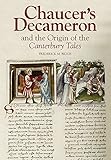Overview
Services
Non-Fiction
Languages
Certifications
- Society for Editors and Proofreaders 'CE 3: Copy-editing Progress', passed May 2017
Work experience
Self-employed
Portfolio





















































Francis has 4 reviews
Professionalism
Quality
Value
Responsiveness

